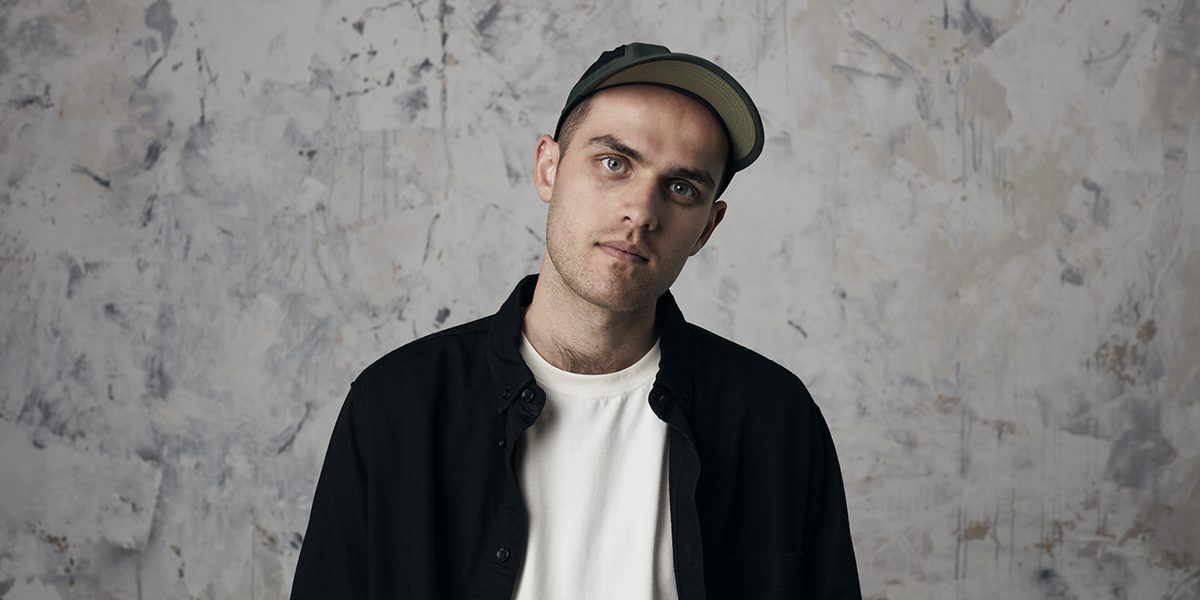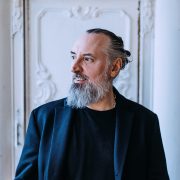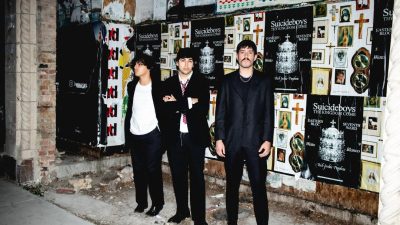Jordan Rakei reflecting on the making of his upcoming album “What We Call Life”

Jordan Rakei’s approach to music writing is like a journey of self-discovery. His last album, Origin (2019), was looking closely at the impact between technology and people. Since Origin a lot has changed in the world and many things, however ugly, have floated up to the surface of our current reality. Self-care and therapy finally have lost their stigma and admittedly have helped many of us to get through, well a bunch of things. Jordan’s latest release “Clouds” (third single from upcoming studio album) addresses global conversation around race and discrimination, something he admits to diving into during therapy. Through this track Rakei “reflect on his own mixed-race heritage (his father is a Pacific Islander, his mother white) and the privileges that his light skin has afforded him in Western society.”
This new album, What We Call Life (Ninja Tune), is a departure from Rakei’s past work, it is a conscious shift to writing more openly and from the heart. At this time, Jordan is working on finalizing the album, soaking in the inspiration from some notable collaborations, and has recently announced the UK and European headline tour for April 2022. With so much in the works, it was time to catch up and learn more about this promising new album, set to release on September 17, 2021.
Kateryna Topol: Hello Jordan, nice to speak to you again, how has 2021 been treating you so far?
Jordan Rakei: 2021 has been a mixed bag, to be honest! The start of the year was difficult because we were in another lockdown at the same time as trying to finish a record! So it was hard to maintain any sort of work ethic! However, after everything has opened back up, I’ve enjoyed it all a lot!
KT: I suspect a lot of us can relate to this. The latest single from your new album What We Call Life, “Clouds,” is touching on some pretty serious issues of race and discrimination, is this something we will see more of on the album?
JR: “Clouds” was the only song from the album that spoke on that. I tried to reflect on a variety of things that therapy brought to the surface – ranging from my parent’s divorce, moving to a new country, marriage, my childhood, and more!
KT: Looking forward to experiencing all this openness! How much influence would you say the events of this past/current year had on the album?
JR: To be honest it hasn’t made much impact on it. I wrote and recorded nearly all of it just before the first lockdown in March 2020. I guess the last year has enabled me the time to really flesh out some ideas and dive deep into the production side of things. But lyrically I had already decided on a concept far before the pandemic hit us!
KT: Makes sense, when we last spoke (in 2019) you mentioned already having 12 tracks for the next album, did some of them make it into What We Call Life?
JR: Yeah I think about half of those made it! I went for another week to write and record with the same crew, and we came up with another 12 or so tracks. So it was really hard choosing my favourites from the bunch [laughs]. It’s like choosing your favourite child. But yeah, I whittled them down to a select few and then started working on them more.
KT: That’s awesome. You also mentioned trying to continually evolve your sound, sonically and such, have you done that for this upcoming album?
JR: Definitely. And that has come mostly through collaborating with more people, out of my usual ‘sonic world’. We pushed ourselves to make something I hadn’t made before and I think we’ve achieved that. At times it feels like an evolution of some previous works, but at the same time it feels quite fresh to me and that’s exciting!
KT: That’s very exciting! In this album, you write more openly and from the heart, how was that experience for you – liberating, challenging, enlightening?
JR: It’s a mixture of everything really. I never feel self-conscious about lyrics or anything. Because I let the music and lyrics do the talking when it comes to more personal stuff. However, when it comes to talking about those same topics in person, I find it much more difficult. So I use the music as a vehicle for those more touchy subjects and I can really be free and more vulnerable in that sense.
KT: Looking back at your time between Origin and now you’ve done some really great collaborations — Common, Loyle Carner, Nile Rodgers, Terrace Martin etc — can you reflect a bit on some of the highlights from these experiences?
JR: Yeah, working with so many great artists has been amazing. It constantly makes me realize how lucky I am to be where I am. After leaving any of those sessions I give myself a quick reality check like – ‘don’t take for granted the fact you just worked with Nile Rodgers’. Massive boxes ticked from those collaborations. In one sense I feel like it validates all the time and effort I’ve put in to get to this point. I just made sure to be confident of my own ideas in that session!
KT: Are any collaborations going to show up on the new album?
JR: There are actually no vocal collaborators on this album. I like doing it all myself, as I can really control the narrative of the lyrics etc. However, as mentioned earlier, there was a lot of instrumental collaboration from all of the people I brought out to those sessions in the countryside. We had Jim Macrae, Jon Harvey, Chris Hyson, Imraan Paleker, Ernesto Marichales all contributing to the music and it was such an amazing open musical experience.
KT: You are heading out on your biggest yet UK and European headline tour in spring, what about North America, will we be seeing you in those parts any time soon?
JR: I’m really hoping to come out to North America. A lot is riding on the pandemic and the ability to travel/quarantine and just general stuff like that. It’s more of a logistical hold-up at the moment! But we are definitely hoping to come out there on this tour! The album was made to be performed live, so fingers crossed!
Photo Credit: Joseph Bishop













